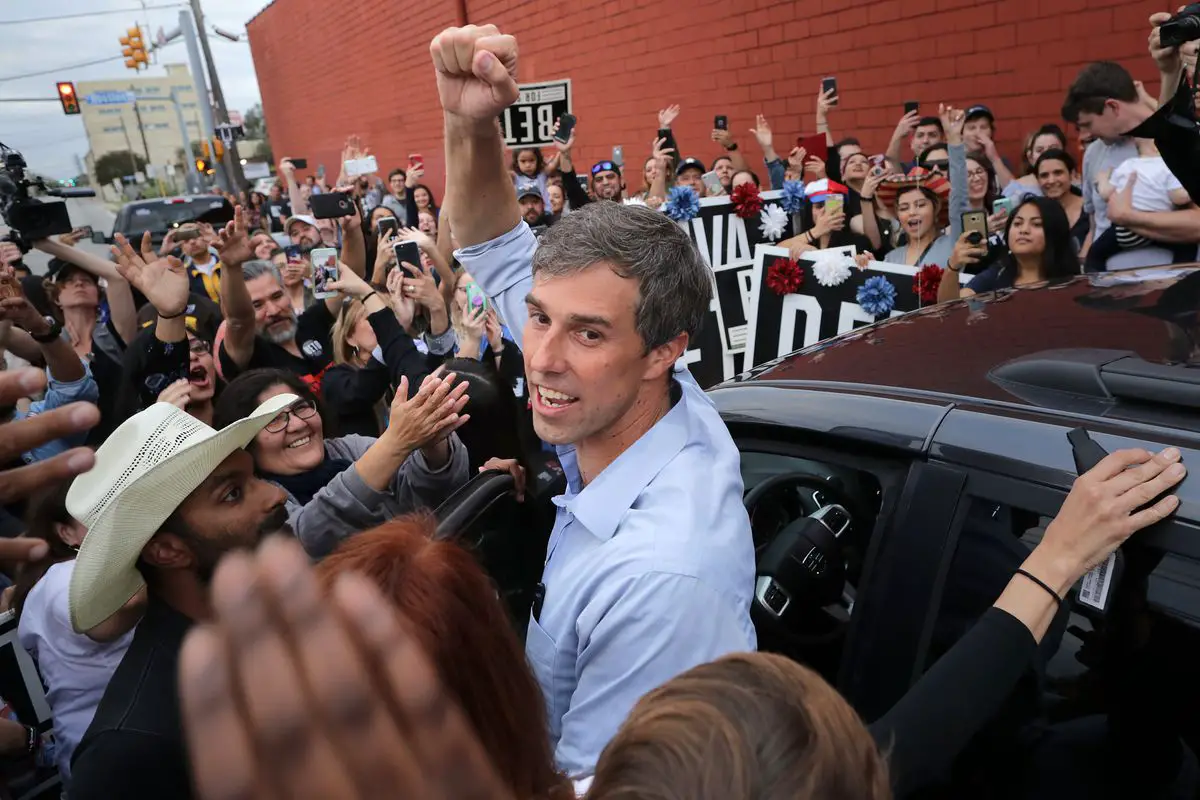A rallying cry from the blue community rang through the United States after Election Day upon hearing Beto O’Rourke’s painfully close loss to Texas incumbent Ted Cruz for the Senate seat. Despite the defeat, Texans and progressives from across the nation joined hands in hopes of inspiring support for O’Rourke’s potential presidential campaign in the coming years.
And just like that, Beto2020, a popular prospective campaign slogan, rose like a phoenix from the ashes and took flight.
O’Rourke’s campaign can be marked as one of the most energizing runs in Democratic history, and his close margin of defeat in the rigid red state is testament of that. He was almost successful in washing Texas, a longstanding Republican ally, in blue. He conducted an extremely personal campaign, canvassing across the state and visiting 254 counties and 358 town halls. This tactic was emblematic of his people-first policies, and it genuinely registered with the American people.
However, this door-to-door strategy proved insufficient for some of the more partisan Texas citizens. His effort to fully reason with Texas’ red heart was unfortunately not enough. The state’s dedication to the Republican agenda has been fostered since the ‘90s and isn’t likely to falter in the coming years. Gerrymandering throughout the state optimized the Republican’s viability throughout the past decade and a half, ensuring that support for their agenda would be pushed and nurtured in suburban areas across Texas.
However, despite these efforts put forth by Texas Republicans, their master plan has begun to crumble. According to Christopher Hooks of The Atlantic, suburban communities on the outskirts of Dallas, Fort Worth and Austin followed closer to their metropolitan counterparts and, “abandoned Republicans.” Recent polling statistics have also shown a divorce from the Republican identity with middle-aged, college-educated women in the suburban areas across the country. This element of the political topography of the state helped to further O’Rourke’s popularity.
Reasons for this transition between parties obviously varies across different demographics, even within a stereotypical area such as southern suburbia. O’Rourke’s unabashed enthusiasm for the issues he stood by and vowed to fix could have inspired change within even the reddest communities. His “we should all have a chance to succeed” slogan very well might’ve also touched the hearts of millions of previously stubborn Texans. His appeal stretched to minorities, women, people of color and small business owners, with a message that was inclusive rather than restrictive and resonated with a much wider audience than actually anticipated.
O’Rourke ran on a unique platform, with policies that were neither extremely leftist nor dead centrist, but somewhere in the middle — a hopeful sign in the midst of such a stark split between partisan identities and ideas. He didn’t take any PAC money as many of his counterparts do, and found his position in politics as a former small business owner who genuinely cared about enacting and enabling change in his community.
This is certainly not to say that his policies are not progressive, and it seems as though his opponents are using this as a medium to write him off. Unfortunately, the retrospective nature of progressivism is oftentimes overlooked. To progress is to move forward and grow from the past, and that’s just what O’Rourke is trying to do and communicate. He champions policies that look to mend this confused and broken country that, in recent years, has seen a large regressive influence take control.
The scope of his influence bled into the celebrity community, attracting the support of influential figures including Beyoncé and Jake Gyllenhaal who voiced his opinion on Facebook while sporting a “Beto for Senate” t-shirt and smug smile, with the statement, “vote for change, for compassion, for civility, for wisdom. Vote because you think the government doesn’t affect you or there’s no such thing as a good politician…vote for Stacey Abrams and Beto O’Rourke and Andrew Gillum.”
Perhaps it is O’Rourke’s contagious energy that propagated the idea of Beto2020. Perhaps it is his anti-Trump rhetoric and inviting nature that attracted a slew of Americans from Texas and beyond. On the Democratic front, O’Rourke could represent the best chance at taking back the country in 2020. Even with his exponentially growing political capital, or the momentum gained from the mid-terms, it may be to no avail.
It seems as though no amount of public support or endearment could shake O’Rourke’s steadfast opposition to running in the 2020 presidential election. Undertaking such a task, even in the campaign process alone, can be agonizingly stressful. In an interview with CBS’s “60 Minutes,” O’Rourke insisted, “I don’t want to do it, I will not do it.” His dedication to his family formally outweighs any interest he would have in even considering partaking in the election process. His Senate campaign took a large toll on his availability to his family; he missed birthdays, anniversaries and monumental moments in his life. The road to presidency wouldn’t be any more forgiving in this regard, and it is something, at the moment, O’Rourke isn’t willing to sacrifice.
The crowd sighed in defeat in light of this devastating information. Even though O’Rourke has affirmed his plans to not further his political career and let Beto2020 be just a dream, he has created a strong momentum that other representatives of the Democratic party will ride out.
His youth, vibrancy and charisma made him the north star a lot of people have wanted to follow. He is an emblem of hope in this dark, confusing and volatile political climate. Even if it is not O’Rourke himself that takes the stand against Trump in the upcoming presidential election, he is sure to inspire another Democratic candidate that shares the same inclusive beliefs.
















